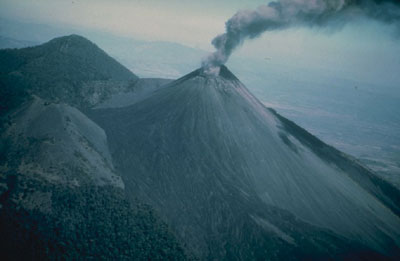United Nations Secretary-General Reaffirms Commitment to Rebuilding of Guatemala
Alicia Bárcena, Executive Secretary of ECLAC, took part in the meeting on behalf of Ban Ki-moon.

(12 October 2010) The Secretary-General of the United Nations, Ban Ki-moon, reaffirmed the international organization's commitment to the recovery and rebuilding of Guatemala, following the devastating consequences of the natural disasters that struck the country in 2010.
The UN Secretary-General sent a message to the International Cooperation Conference for the Reconstruction with Transformation of Guatemala, which was read out by Alicia Bárcena, Executive Secretary of the Economic Commission for Latin America and the Caribbean (ECLAC), who represented him at the meeting.
Ban Ki-moon said he hoped that the Conference (being held from 10 to 12 October) "will generate political and financial support for addressing Guatemala's needs".
He went on to say that "We at the United Nations are determined to stand by the people and Government of Guatemala as they recover and rebuild".
Alicia Bárcena declared that the plan for reconstruction with transformation also required a focus on equality:
"Equality has to be part of the fundamental aims of the entire programme. This is because inequality works against the markets, against the environment, against development. If we do not take action within the next 10 years, it is future generations that will be suffering the consequences".
She therefore said it was urgent to mobilize the resources of the international community.
She stated that the commitment and capacity must be countrywide and come from the people as a whole, committing to a more equal development that also leads to productive and territorial convergence, so that there are no longer territorial winners and losers: "Everyone has to be first-rate citizens. There can no longer be first-, second- and third-rate citizens".
The ECLAC Executive Secretary also insisted on the need for Guatemala to introduce a new fiscal covenant, in which the public sector has the power to become involved in investment projects that form the basis of effective public-private partnerships.
As part of a consortium with the World Bank, the Inter-American Development Bank (IDB), the Global Facility for Disaster Reduction and Recovery (GFDRR) and the United Nations Development Programme (UNDP), ECLAC provided technical support to the Government of Guatemala for assessing damage, losses and needs following the eruption of the Pacaya volcano, tropical storm Agatha and the heavy rainfall, tropical depressions and other tropical storms that struck the country between May and September.
According to the results of this assessment, which was presented at the International Cooperation Conference, the disasters affected about 560,000 people, which is almost 4% of the national population. Nearly 210,000 people had to be evacuated, and there were 235 deaths, 42 people missing and 223 injured.
In economic terms, total damage and losses resulting from all events have been estimated at US$ 1.553 billion (or 4.1% of GDP).
Any queries should be addressed to the ECLAC Public Information and Web Services Section.
E-mail: dpisantiago@cepal.org; telephone: (56 2) 210 2040.
Related content
Conferencia Internacional de Cooperantes para la Reconstrucción con Transformación de Guatemala
Por Alicia Bárcena, Secretaria Ejecutiva de la CEPAL
Country(ies)
-
Guatemala
Contact
Public Information Unit
- prensa@cepal.org
- (56 2) 2210 2040